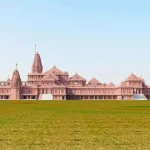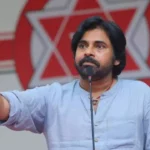Numerous sections of Rahul Gandhi’s first speech as Leader of the Opposition in Lok Sabha were removed from the records of Parliament. This occurred after the speech was delivered.
In a statement that he made in the Lok Sabha on Tuesday, the leader of the opposition, Rahul Gandhi, attacked Prime Minister Narendra Modi and asserted that what Modi had said was accurate. A day after several elements of Rahul Gandhi’s speech on minorities, the NEET issue, and the Agnipath project were removed from the records of Parliament on the instructions of the Speaker, Rahul Gandhi had the opportunity to respond to the situation.
It is possible to erase the truth in Modi ji’s world. The truth, however, cannot be obliterated in the actual world. To tell you the truth, I did say what I required to say. As much as they desire, they are free to delete. When Rahul Gandhi was entering the Lok Sabha during the ongoing session of Parliament, he told the reporters that “the truth is the truth.”
During his statement on Hindus, Rahul Gandhi was met with massive demonstrations from the benches of the Treasury. Prime Minister Narendra Modi criticized the Congress leader for referring to the whole Hindu community as aggressive.
In addition to other things, Rahul Gandhi’s remarks about Hindus and Prime Minister Narendra Modi, the BJP, and the RSS were removed from his address. Exclusions were also made from the remarks made by the Congress MP regarding the industrialists Adani and Ambani, as well as the Agniveer Scheme.
During Rahul Gandhi’s speech, which lasted for almost an hour and forty minutes, at least five cabinet ministers interjected while he was speaking. Amit Shah, the Union home minister, demanded that Gandhi apologize for his remarks. Modi intervened twice during the speech.
Fearlessness is a concept that is discussed in more than one religion. When Rahul Gandhi made his first address as the leader of the opposition in the Lok Sabha, he stated, “In fact, all of our religions talk about courage.” His mother, Sonia Gandhi, and his sister, Priyanka Gandhi Vadra, were present in the visitors’ gallery while Rahul Gandhi delivered his statement.
As the debate on the Motion of Thanks on the President’s Address to a Joint Session of Parliament was taking place, the leader of the Congress party was heard speaking.
For the purpose of highlighting the fact that the Quran discusses bravery, Rahul Gandhi also cited Prophet Muhammad.
The importance of fearlessness was emphasized by Rahul Gandhi, who spoke to other religions, including Jainism, Christianity, Sikhism, Buddhism, and Jainism, while holding up photographs of Lord Shiva, Guru Nanak, and Jesus Christ. Furthermore, he referred to the characteristics of Lord Shiva as well as the teachings of Guru Nanak, Jesus Christ, Buddha, and Mahavir in order to assert that all religions and those who have made significant contributions to the nation have said the phrase “daro mat, darao mat” (do not be terrified, do not terrify others).
“Shivji says daro mat, darao mat … talks about ahimsa…”
In the midst of his address, Modi was heard saying, “This matter is of the utmost importance.” It is a severe matter to refer to the entire Hindu community as violent.
The Congress politician was asked to apologize to the House of Representatives and the entire nation for hurting the sensibilities of crores of people who take pleasure in identifying themselves as Hindus. Amit Shah made this request.
For Rahul Gandhi’s claim that the ministers do not greet him, the Prime Minister responded by saying that democracy and the Constitution have taught him to take the leader of the opposition seriously. This was a jab at Rahul Gandhi.
There have been millions of individuals who have fought the concepts that have been proposed by the ruling party, and Rahul Gandhi has accused the Bharatiya Janata Party (BJP) of initiating “systematic attacks” on the Constitution and the fundamental concept of India at large.
According to Prime Minister Modi and the government, I was attacked on their orders. “I was subjected to 55 hours of interrogation by the ED, there were over twenty cases brought against me, I was sentenced to two years in jail, my house was taken away, and I was placed under arrest,” he claimed.
Speaker Om Birla told the Congress leader—who was holding up a picture of Lord Shiva—that the rules do not permit the exhibition of placards in the House of Representatives.
In response to Rahul Gandhi’s allegations on the Agnipath Scheme, the Minister of Defence, Rajnath Singh, sprang into action.











